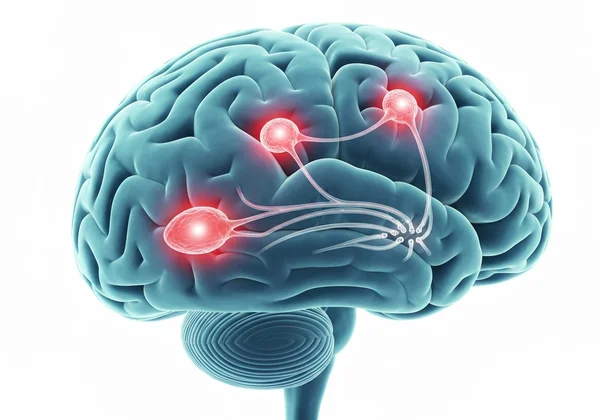Sociopath Test: Understanding the Empathy Deficit and ASPD
November 11, 2025 | By Roman Caldwell
Have you ever interacted with someone who seems completely indifferent to your feelings? Someone whose charm feels hollow and whose actions consistently disregard the emotional impact they have on others? This unsettling experience often leaves us questioning the very nature of human connection. For many, this leads to a difficult question: What are the signs of a sociopath? At the heart of this question lies a profound concept: the empathy deficit. This article will explore the psychological and neurological reasons behind this lack of empathy, a core trait associated with Antisocial Personality Disorder (ASPD), and what it means for those who encounter it.
Understanding these complex traits can be the first step toward clarity. For those seeking a confidential starting point for self-reflection, a scientifically-grounded sociopath test can offer initial insights. It's a tool designed not for diagnosis, but for greater self-awareness.

What Does "Lack of Empathy Sociopath" Truly Mean? Answering "Am I a Sociopath Test" Questions
The term "lack of empathy sociopath" is frequently used, but empathy itself is not a single, simple emotion. To truly understand the deficit, we must first distinguish between its two primary components. This distinction is crucial for understanding how an individual with ASPD navigates the social world.
Understanding Cognitive vs. Affective Empathy
Cognitive empathy is the ability to intellectually understand another person's perspective or mental state. It's the capacity to think, "I can see why they would feel sad about that situation." You can logically deduce their emotional state based on context and cues. In contrast, affective empathy is the ability to feel what another person is feeling—to share their emotional experience. It's the visceral response that makes you wince when you see someone get hurt or feel a pang of sadness when a friend is crying. It is the emotional resonance that forms the bedrock of genuine human connection.
The Core Deficit in ASPD: Why Emotional Connection Fails
The primary issue for individuals with sociopathic traits lies in a severe deficiency in affective empathy. They may possess strong, or even superior, cognitive empathy. They can observe, analyze, and predict human emotions with remarkable accuracy. However, they do not share in those emotions. This disconnect is why their interactions can feel so predatory; they understand which buttons to push to get a desired reaction but feel no genuine remorse or shared joy. This failure of emotional connection is not a choice but a fundamental aspect of their psychological makeup, creating a one-sided social dynamic built on observation rather than shared experience. If you are trying to make sense of such behaviors, a confidential self-assessment can help organize your thoughts.
The Neurological Basis of Empathy Deficit in ASPD
The absence of affective empathy is not merely a personality quirk; it has observable roots in the structure and function of the brain. Modern neuroscience has begun to map the biological underpinnings of this condition, moving our understanding from moral judgment to scientific inquiry. This evidence helps explain why changing these core traits is so profoundly difficult.
Brain Regions and Connectivity Impairments in Sociopathy
Research consistently points to differences in key brain regions in individuals with high levels of sociopathic traits. The amygdala, a critical hub for processing emotions like fear and generating empathetic responses, often shows reduced activity. Furthermore, the prefrontal cortex, which is responsible for impulse control, moral reasoning, and regulating emotional responses, frequently has impaired connectivity with the amygdala. This neurological disconnect means that even if an individual intellectually recognizes an emotional cue, the signal fails to trigger the appropriate emotional and regulatory response, leading to the cold, calculated behavior often associated with the disorder.

Genetic and Environmental Factors Influencing Empathy Development
The development of ASPD is a complex interplay of nature and nurture. There is a clear genetic predisposition; individuals with a family history of personality disorders are at a higher risk. However, environmental factors play a powerful role in whether these genes are expressed. A chaotic or abusive childhood, inconsistent parenting, neglect, or early exposure to violence can severely disrupt the normal development of emotional processing and empathy circuits in the brain. In essence, while a genetic predisposition may exist, environmental factors frequently play a pivotal role in the manifestation of these traits.
"Can Sociopaths Feel Empathy?" Unpacking the Complexities
This is one of the most frequently asked and misunderstood questions. The answer is nuanced. While they experience a profound lack of genuine affective empathy, they can be masters at simulating it. This manufactured empathy is a tool used for social survival and manipulation, not for connection.
Superficial Charm and Mimicry: How Empathy Can Be Faked
Individuals with sociopathic traits are often keen observers of human behavior. They learn to mimic the emotional expressions, language, and gestures associated with empathy because they recognize it is socially advantageous. This performance can be incredibly convincing, manifesting as superficial charm and charisma. They might say all the right things, offer a shoulder to cry on, or perform grand gestures of kindness. However, this is a learned script, devoid of the underlying emotional resonance. Once the individual no longer serves their purpose, the mask drops, revealing the indifference beneath. If this pattern feels familiar, it may be helpful to gain deeper insights.

The Instrumental Use of "Empathy" for Manipulation and Control
For someone with ASPD, cognitive empathy becomes a powerful weapon. They use their intellectual understanding of others' emotions not to comfort or connect, but to exploit vulnerabilities for personal gain. This is instrumental empathy. They can identify a person's deepest fears, desires, and insecurities and use that knowledge to manipulate and control them. This calculated approach is why their actions can be so devastatingly effective and emotionally destructive to those around them.
Navigating Relationships with Sociopathic Traits: Insights from a Sociopath Personality Test
Forming a relationship with someone who has a significant empathy deficit is often a confusing, painful, and draining experience. The fundamental building blocks of a healthy partnership—trust, reciprocity, and emotional safety—are compromised from the start.
The Impact on Communication, Trust, and Emotional Reciprocity
In a relationship with an individual lacking affective empathy, communication is fundamentally broken. Your emotional expressions are not met with genuine understanding or shared feeling but are instead registered as data points. There is no emotional reciprocity; you give emotional support, but you receive none in return. This one-sided dynamic erodes trust over time, as you realize your partner's actions are driven by self-interest rather than a shared emotional bond. This can lead to feelings of profound loneliness and isolation, even within the relationship itself. Recognizing these patterns is the first step, and using a free sociopath test can provide a structured way to evaluate them.
Protecting Your Emotional Well-being and Setting Healthy Boundaries
If you believe you are in a relationship with someone exhibiting these traits, protecting your emotional well-being must be your top priority. This begins with setting firm and unwavering boundaries. Because individuals with ASPD often disregard social rules and personal limits, you must clearly define what behavior is unacceptable and be prepared to enforce consequences when those lines are crossed. It is also crucial to build a strong support system outside of the relationship and to remember that you cannot "fix" or "cure" their lack of empathy. Your focus should be on your own safety and mental health.

Key Takeaways: Understanding the Empathy Deficit for Clarity and Self-Reflection
The empathy deficit in sociopathy is a complex psychological and neurological phenomenon that goes far beyond simple selfishness. It is a fundamental inability to connect with the emotional experiences of others, leading to behaviors that are manipulative, detached, and often destructive. Understanding the difference between cognitive and affective empathy is key to making sense of the confusing dynamic of a person who seems to understand you perfectly yet feels nothing for you.
This knowledge empowers you to set boundaries, protect your well-being, and make informed decisions. If this article has resonated with your experiences or sparked questions about your own traits, the journey to clarity begins with a single step. We invite you to start your self-reflection with our free, confidential, and anonymous online assessment. It is designed to be a preliminary tool to help you gain personal insight, based on established psychological criteria.
Frequently Asked Questions About Sociopathy and Empathy
Can a sociopath truly love someone, despite lacking empathy?
Love, as most people experience it, is deeply intertwined with affective empathy, mutual care, and emotional vulnerability. An individual with a severe empathy deficit cannot experience love in this way. They may form attachments based on convenience, admiration, or a sense of ownership, but this is not the same as the reciprocal, emotionally resonant connection that defines genuine love.
How do sociopaths typically act in close personal relationships?
Relationships with sociopaths often follow a predictable pattern: an intense "love-bombing" phase filled with charm and adoration, followed by devaluation, manipulation, and emotional control once they feel secure. The relationship is often characterized by a lack of emotional depth, broken promises, and a dynamic where one person is constantly giving and the other is taking.
What is the core difference between a sociopath and a psychopath regarding the experience of empathy?
While both terms fall under the umbrella of Antisocial Personality Disorder, there are subtle distinctions. Psychopathy is often considered a more severe form, characterized by a complete lack of empathy and a genetic basis. Sociopathy is thought to be more influenced by environmental factors, and individuals may have a limited, albeit weak, capacity for empathy or remorse in certain situations. The core difference lies in the severity and origin of the empathy deficit. To explore the traits further, an assessment can be a useful starting point.
Is there an official psychological test specifically for "lack of empathy" related to sociopathy?
There isn't a single "lack of empathy test," but a lack of empathy is a key criterion in comprehensive psychological evaluations for Antisocial Personality Disorder, such as the Psychopathy Checklist-Revised (PCL-R), which must be administered by a qualified professional. Online tools, like the free sociopath test offered here, serve as preliminary screening instruments based on DSM-5 concepts to help users identify potential traits that may warrant further exploration with a mental health expert.